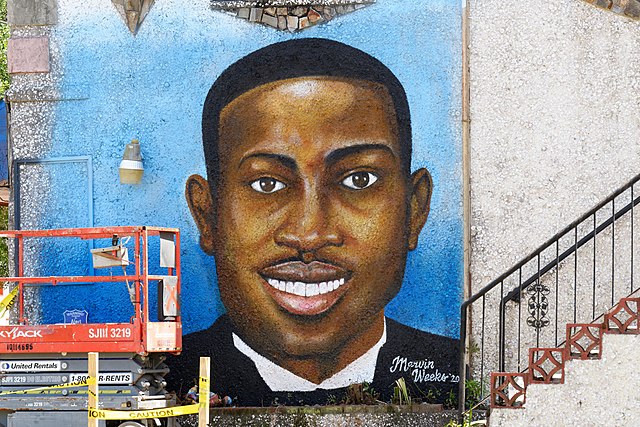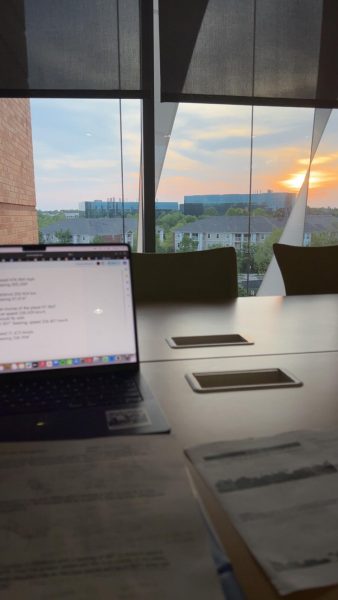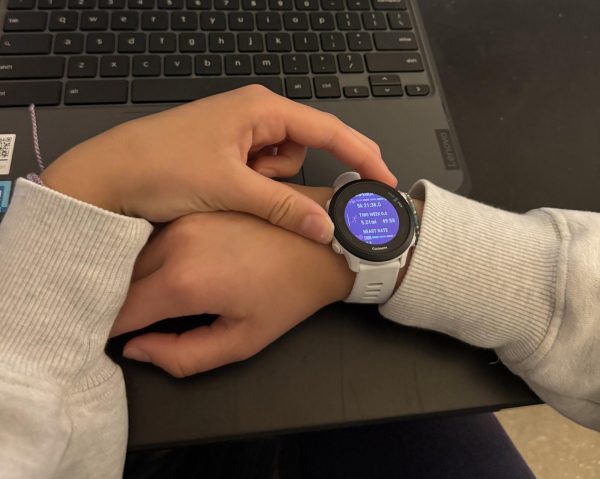Murderers of Ahmaud Arbery convicted of hate crimes
Photo used with permission from WikiCommons
A mural depicts Ahmaud Arbery.
The three murderers of Ahmaud Arbery were found guilty of federal hate crimes and kidnapping on [insert date]. Significantly, a large part of the evidence for making this verdict was the history of racist messages that these three people had. The court had a plethora of evidence of each of the three murderers saying vile racial slurs that make it clear that their act was out of hate for Arbery’s color, and the court justly ruled as such. After last November’s state trial, which avoided discussions of race, the three murderers were sentenced to life in prison. The federal trial charged them with rights interference – a classified hate crime – and kidnapping.
In order for the the court to rule Arbery’s murder as a hate crime, on top of a murder, it must be confirmed that the crime is “motivated by bias against race, color, religion, national origin, sexual orientation, gender, gender identity, or disability,” according to the United States department of justice.
United States Attorney General Merrick Garland spoke out the day after the verdict was given. He made it clear that “it was racism that fueled them” He said that “nobody in the country should fear that when they go out for a run that they will be killed because of the color of their skin.”
As another case regarding a Black person’s death finds its way to a conclusion, it’s time once again to visit the impact that this ruling has on the world. How can we as a nation find a way to stop these unjust killings based on the color of one’s skin?
The murderers have now filed for an acquittal of the hate crime, arguing that the government did not sufficiently provide evidence that Arbery was jogging on a public street, and that there was “no evidence that Arbery was targeted because of his race or color.”
Now, as the murderers are convicted, it’s time to think about if justice was really served. Senior Ted Otengo said, “I do believe that justice has been served as it should’ve been because his family and a lot of Black families in America were traumatized by that experience, and in recent times, there have been similar cases where the attacker was not convicted properly by the courts, so it’s definitely satisfying.”
However, it’s obvious that no matter how “fair” a ruling is, it will never make up for the unjust deaths that have happened to so many innocent Black people, solely because of their color. English teacher Dominique Parker said, “While I applaud the rulings, like the previous state ruling it just makes me feel sad and tired. I’m sad because yet another Black person was killed by racists; another life was cut short for no other reason than some peoples’ ignorance and hatred. I’m tired because when I heard about the shooting I though ‘not again.’”
That, I think, is the most valuable piece to take away from this whole case. Yes, it’s good that the courts made the right decision, but at the end of the day, in the words of Parker: “I suppose it can be called justice, but his mother still has to grieve his son’s murder.”
Your donation will support the student journalists of Thomas S. Wootton High School. Your contribution will allow us to purchase equipment and cover our annual website hosting costs.
Simon Kidane is a 2022 graduate.







